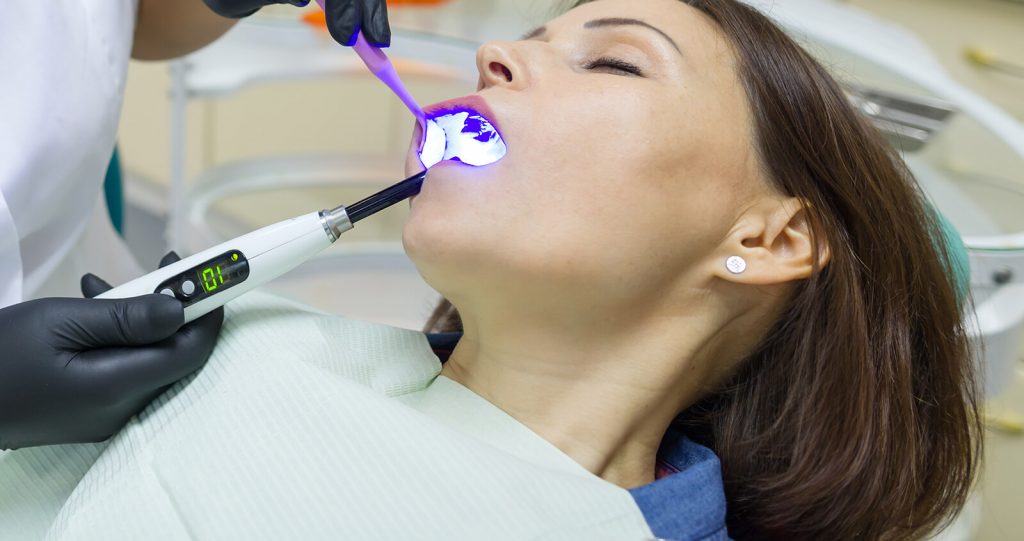Do Your Research
Sedation dentistry is a must for the anxious dental patient, but not everyone is comfortable with the idea of prescription drugs. For patients who need help getting through a dental appointment but prefer a natural approach to medicine, homeopathic sedation may be an option.
Considered a form of holistic medicine, homeopathy has been used for over 200 years. The philosophy of homeopathic therapy revolves around treating the patient, not the disease. Homeopaths believe that illness — whether physical or mental — creates an unbalance in the body, mind and emotions. In order to successfully treat the patient on all three levels, you must remove the cause as well as the symptoms of your ailment.
Homeopathic medicine is based on the idea that what causes a disease can also cure it. Homeopathic remedies consist of natural substances that are repeatedly diluted until the correct formula is achieved. These remedies are thought to build up your immune system and stimulate the body’s defenses to fight illness.
Why Choose Homeopathic Sedation?
As interest in homeopathy has grown over the years, there is a recognized need for homeopathic medicine in dentistry. Homeopathic dental remedies serve the following functions:
- To reduce pain or provide toothache remedies
- To speed up recovery
- To relieve dental anxiety
Although it’s a common and safe dental treatment, some patients may not be comfortable with the idea of conscious sedation — they may be concerned about the possibility of experiencing side effects or possible complications during the procedure. In these cases, homeopathic sedation may be substituted to help fearful patients relax during their dental appointments.
Types of Homeopathic Sedation Remedies
There are several types of homeopathic sedation remedies available today. Each contains different ingredients to relieve dental anxiety, nervousness, panic attacks, hypertension and other emotional and mental disorders associated with dental fear. You will need to discuss your symptoms with a homeopathic expert (homeopath) or homeopathic dentist to find the right remedy for you.
These are some of the homeopathic remedies that may be used to battle dental anxiety:
- Aconite and argentum nitricum are two powerful anti-anxiety agents. They are used in high-stress cases that include extreme dental fear, anxiety, panic attacks or nervousness. They may be used for highly agitated patients.
- Arsenicum album also helps relieve fear, stress and extreme restlessness. It is often associated with patients who are anxious over their health.
- Calcarea carbonica may be used for patients who are apprehensive to get dental work.
- Chamomile, passionflower and oats all help cure insomnia the night before dental treatment.
- Coffea cruda helps calm nerves. As it’s made from the same plant that produces the coffee bean, those who drink coffee may be immune to its effects.
- Gelsemium (yellow jasmine) can help relieve tension and anxiety for patients who feel a loss of control.
- Ignatia may be used to treat patients who are easily excitable or suffer from erratic behavior.
- Kava kava is a muscle relaxant that helps you sleep and can also reduce sensitivity to pain. Kava is also strongly known for anxiety relief. It is not recommended to treat ongoing depression, as it can cause damage to the skin, eyes, liver or spine.
- Phosphorus and silica are also used to treat several types of anxiety.
- Valerian is a common sedative used to relieve insomnia and anxiety.
Other homeopathic sedation remedies, such as the Bach flower remedies or St. John’s wort, can be purchased over the counter prior to your dental appointment. Developed by Dr. Edward Bach in the 1930s, the Bach flower remedies use diluted herbal extracts to relieve panic, anxiety, stress, depression and other related ailments.
Some Things to Consider …
For the most part, homeopathic remedies are relatively safe and non-addictive. Homeopathic sedation does not require a prescription or FDA approval — but keep in mind that since many homeopathic remedies do not receive clinical testing, there are no guarantees how you’ll be affected by the drug. And because you may not know exactly what is causing your anxiety, you may need to try several types of homeopathic sedation to find the right one for you.
Some homeopaths feel that drowsiness and other side effects often associated with oral sedation do not exist with homeopathic sedation — but just because a product is homeopathic doesn’t mean it’s always good for you. Some herbs are poisonous and may produce unwanted side effects when not diluted properly — and contrary to popular belief, drug interactions are possible when homeopathic remedies are combined with other medications. It’s also important to note that any type of sedation technique is not a painkiller — local anesthesia will be required to numb the pain.

